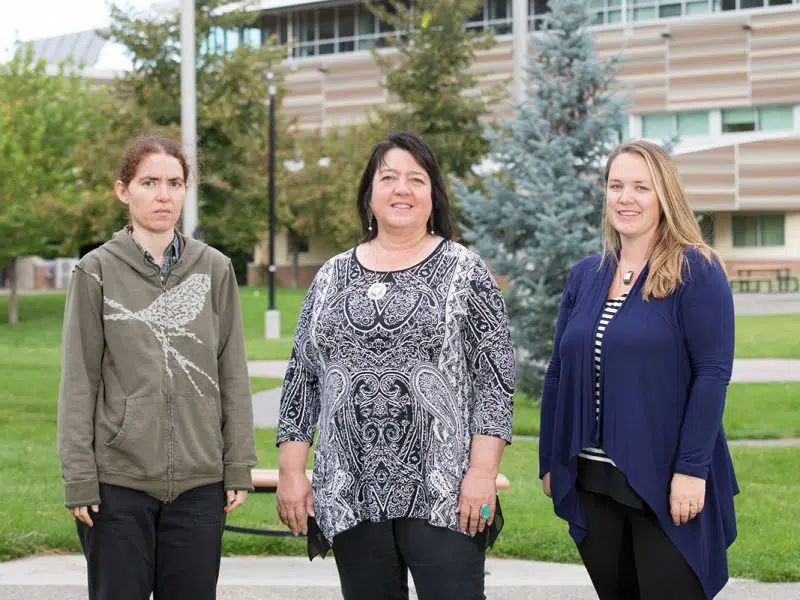
TRU introduces three new Canada Research Chairs
KAMLOOPS — Thompson Rivers University has prioritized strengthening its research capacity, and today introduced three new Canada Research Chairs. The three women are experts in their respective fields and will create new momentum for research at the institution. One of the research chairs will focus on increasing indigenous representation in higher education, which could have a significant impact, considering TRU’s proximity to the many bands in the area.
With the world changing at a rapid pace, higher education is becoming even more important for individuals trying to create their success. Today at Thompson Rivers University, the institution announced three new Canada Research Chair; scholars recognized as emerging leaders in their fields of study.
“It’s a big boost to our knowledge creation mandate at Thompson Rivers University,” TRU President Dr Alan Shaver told CFJC Today, adding “teaching and research are what universities do.”


